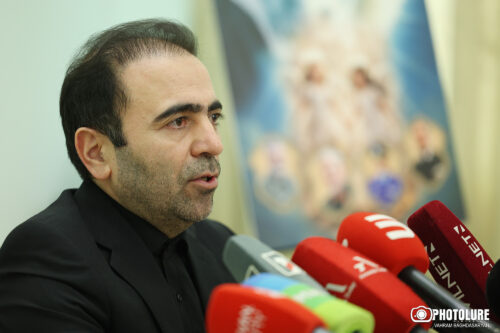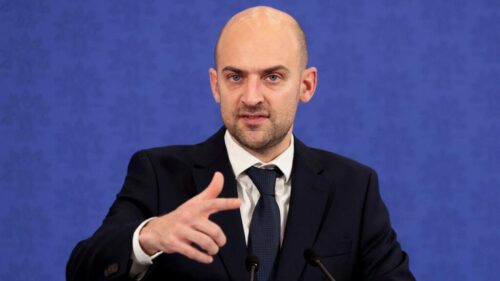
3+3 and BRICS: What opportunities and risks did the meetings in these formats create for Armenia?
Genesis Armenia Think Tank and Foundation has published an article written by Armen Hovasapyan about the meetings held in the 3+3 format and on the margins of the BRICS summit and the role of Armenia in them.
“These days, despite the internal political tension and turbulent reality of Armenia, quite intriguing and important geopolitical events took place, which will leave their most direct impact and mark on the further developments in Armenia. In this case, we are talking about the 3+3 (between foreign ministers of Armenia, Russia, Iran, Turkey and Azerbaijan—Georgia refused to attend) format meeting held in Istanbul and the BRICS summit held in Kazan (leaders of 32 countries of the world attended). Two very important events, which are directly related to the future fate of Armenia.
First, let us make some important and key observations about the 3+3 format, so that it will be clearer what it is and what chances and opportunities it provides to Armenia. This format, which was created in 2020, is mainly a platform for diversification of power poles and positions in the South Caucasus region, and its major goal is to reduce the Western influence in the region. In short, the issues in the South Caucasus should be settled by the parties there who have a conflict of interests; this is the main formula of this format. In this regard, the parties note that the purpose of the 3+3 format is to prevent the entry of extra-regional forces into this sector. Let us note that although Georgia did not participate in the meeting last week, it was a temporary “time-out” and there is no doubt that after the Georgian parliamentary elections, the Georgian side will also join the platform.
We can state that 3+3 is the most natural format in the region and its further development can be quite promising for the entire sector. This is also a chance where we will not be left alone in the negotiation process with Azerbaijan. The issues should be settled regionally and looking for saviors from “outside” is pointless and useless work.
It is no secret that bilateral negotiations are always difficult for the defeated country—in this case Armenia—because the third party, as a rule, always assumes the role of a deterrent. This is an axiom in political science. There is no guarantee that, as we often see, Azerbaijan will break the imbalance and newly impose pressure on Armenia, demanding another batch of concessions. We have already seen such behavior both during the delimitation activities and during the “peace treaty” negotiations (let’s not forget that Aliyev constantly stressed about bilateral negotiations and finally got what he wanted).
As for BRICS, it is essentially a counterweight to the G7, which Russia, China, India, Brazil and other countries are trying to implement together. By the way, these countries are several times larger than the G7 in terms of population and GDP. In other words, the Potsdam world seems to cease to actually exist and a completely new, multi-vector geopolitical reality is emerging.
As for the meeting between Pashinyan and Aliyev that lasted more than an hour in Kazan, which, by the way, was not planned in advance, we have another reason to be embarrassed in this regard, because the published photos and videos clearly show what a happy and lively atmosphere there is between them. In essence, Pashinyan smiles cynically at a person who publicly humiliated him and continues to humiliate him by calling him names and making insulting statements about him. Here we have the following reality: either Pashinyan does not understand the meaning of Aliyev’s mockery and ridicule, or it is simply one of the important components of their plan. But in both cases, we are dealing with a rather serious case.
During the summit, Pashinyan noted that 80-90% of issues have been agreed with Baku, he also noted that the Azerbaijani side was offered to sign the contract. In addition, he noted that Yerevan offered Baku to establish contact with Nakhijevan through the mechanism of simplified procedures. From the text published on Aliyev’s official page, it is clear that “the parties discussed issues related to the peace treaty, border demarcation and delimitation; the foreign ministers were instructed to reach a full resolution of the issue within a short period of time.”
Here we can see a certain change in the Azerbaijani rhetoric, where the harsh statements coming from Baku about the “amendments to the Constitution,” “Western Azerbaijan”, etc., seem to be softened to a certain extent, which definitely gives room for reflection. It turns out that Aliyev made some favorable deal in Kazan, in return for which he shows similar behavior in connection with the conclusion of the “agreement in a short period of time.” In this case, he has some objective achievement, which he could not get in any way before that, which is more than the compulsion to change the constitution. It is not excluded that it is also related to the processes taking place in the Greater Middle East, and this achievement was also beneficial to the interested parties included in that region.
We can assume that the topic is related to the issue of control of the so-called “corridor” passing through Syunik, over which the actual debate was going on for a long time. Perhaps it is not excluded that the parties have come to an agreement that the control should be performed by some customs organization of the BRICS format, which has fully satisfied everyone, first of all the geopolitical beneficiaries. In other words, in this case, it is neither the Russian special services, nor the Armenian border guards, nor any Turkish or Iranian custodian representatives, it is a collective body that may carry out surveillance.
In fact, we have a situation where Nikol Pashinyan, leaving for Kazan and moving the package of negotiations with Azerbaijan there, returns to the rational field, but already defeated and Artsakh lost. There has been a lot of talk about the fact that both the Russian and Western platforms should have been used in negotiations with Azerbaijan, and now, seeing that nothing tangible is coming from the West, the topic is being brought back to the Russian field. It turns out that it was a concrete instruction from the West that everything should be done so that Artsakh does not exist and the Russian peacekeepers leave it as soon as possible (there is an impression that Pashinyan went to Kazan to meet Aliyev).
So, we are currently seeing the geopolitical crisis Pashinyan is in, when on the one hand he praises the collective West, participates in the Francophonie summit, pampers various Western leaders, on the other hand, rushes to Moscow, congratulates Putin on his jubilee, then talks to Xi Jinping and Lukashenko at BRICS. This “crisis” will eventually have its painful consequences. Sooner or later, we need to clearly decide where we are going and what world order and geopolitical pole we are a part of, otherwise such a semi-pregnant state cannot continue for long.
Finally, a key fact. Nikol Pashinyan used to claim that he was the most democratic person in the world, that he would be accountable to the people for his actions, but we can see now that he is the most secretive and conspiracist of all Armenian leaders, and almost all layers of his activities are covered with an impenetrable veil.”


